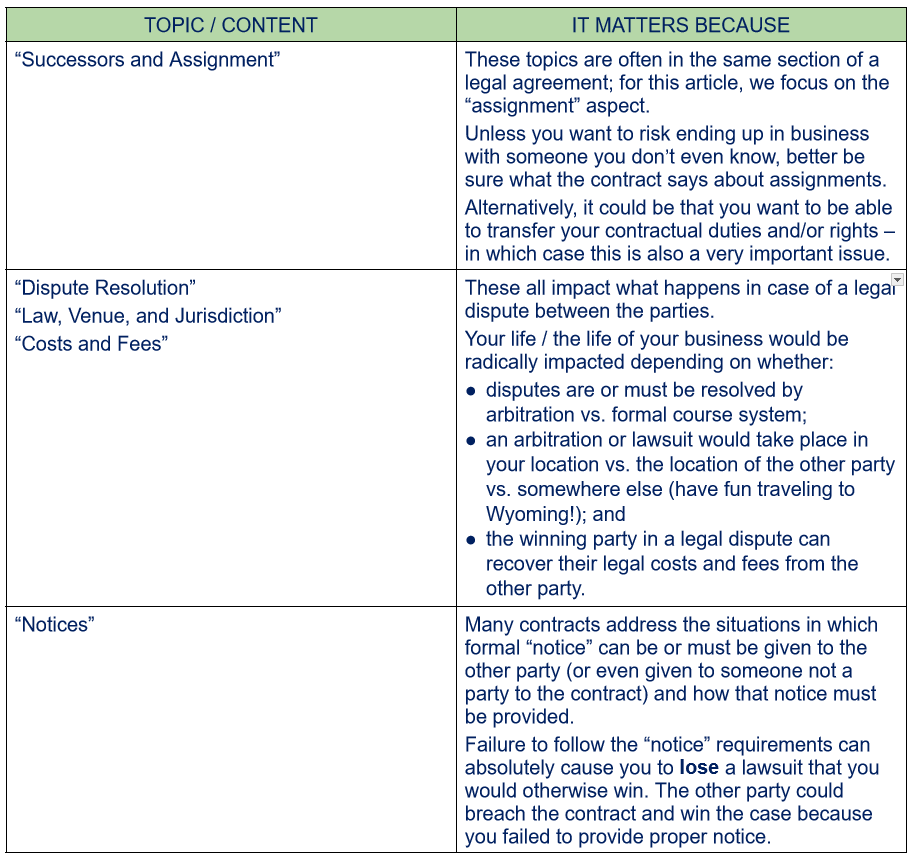Most people (including business owners) want (or think they want) “just a very basic contract – 2 pages, not 10 pages”. There could be many reasons for this; they often include one or more of the following.
(1) They themselves want to be able to understand the contract.
(2) They think the legal fees for the agreement will be less expensive that way.
(3) They don’t want to “scare the other side away with an intimidating legal document.”
(4) On average, human beings have shorter and shorter attention spans and less desire and ability to focus on details – this includes some lawyers.
Of course, what a “basic contract” is varies from situation to situation and party to party.
Some contracts are longer than they need to be and more detailed than they need to be, with very little benefit to the extra content. However, most of the time the “details” which cause some to think the contract is “too long” are important *or could become important*.
Don’t drive without a seat belt, randomly hoping that everything goes perfectly – let the lawyer help you with common sense, reasonable protections.
Here are a few straight forward, real world examples of contract topics which many clients might assume are unnecessary, accompanied by reasons that content can be important and should be considered for inclusion. This is not an all-inclusive list.



